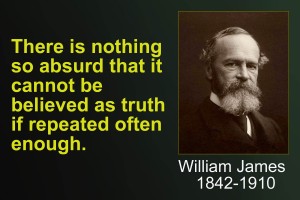Solution to the propaganda state
From Glenn Greenwald: Many news outlets around the world, in the age of the internet, have struggled to find an economically sustainable model for supporting real journalism. The results, including for some of the largest, have been mass lay-offs, bureau closures, an increasing reliance on daily spurts of short and trivial traffic-generating items, and worst of all, a severe reduction in their willingness and ability to support sustained investigative journalism. All sorts of smaller journalistic venues - from local newspapers to independent political blogs - now devote a substantial portion of their energies to staying afloat rather than producing journalism, and in many cases, have simply ceased to exist. . . As governments and private financial power centers become larger, more secretive, and less accountable, one of the few remaining mechanisms for checking, investigating and undermining them - adversarial journalism - has continued to weaken. Many of these large struggling media outlets don't actually do worthwhile adversarial journalism and aren't interested in doing it, but some of them do. For an entity as vast as the US government and the oligarchical factions that control it - with their potent propaganda platforms and limitless financial power - only robust, healthy and well-funded journalism can provide meaningful opposition. For several years, I've been absolutely convinced that there is one uniquely potent solution to all of this: reader-supported journalism. That model produces numerous significant benefits. To begin with, it liberates good journalists from the constraints imposed by exclusive reliance on corporate advertisers and media corporations. It enables journalism that is truly in the public interest - and that actually engages, informs, and inspires its readers - to be primarily accountable to those readers.



